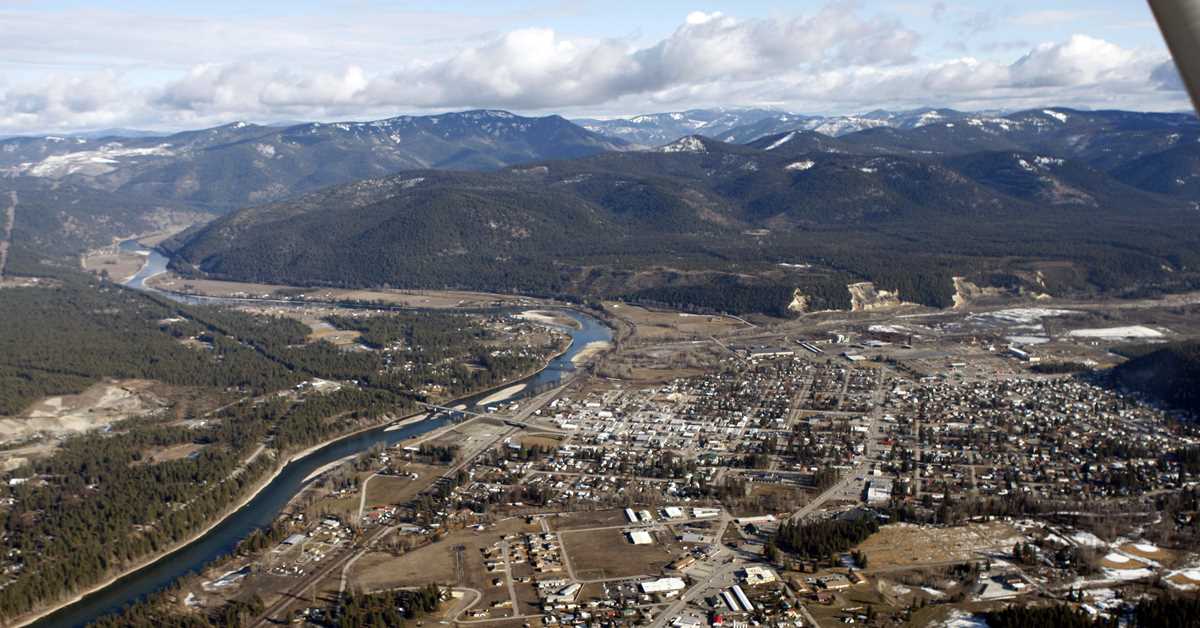 Respiratory therapist Vernon Johnson, left, conducts a pulmonary test on Christine Ekstedt at the Center for Asbestos Related Disease, Thursday, April 4, 2024, in Libby, Mont. The clinic has diagnosed thousands of people with asbestos-related disease following contamination from a nearby mine for vermiculite, a product that was shipped across the U.S. by rail for use as insulation and other purposes. (AP Photo/Matthew Brown)
Respiratory therapist Vernon Johnson, left, conducts a pulmonary test on Christine Ekstedt at the Center for Asbestos Related Disease, Thursday, April 4, 2024, in Libby, Mont. The clinic has diagnosed thousands of people with asbestos-related disease following contamination from a nearby mine for vermiculite, a product that was shipped across the U.S. by rail for use as insulation and other purposes. (AP Photo/Matthew Brown)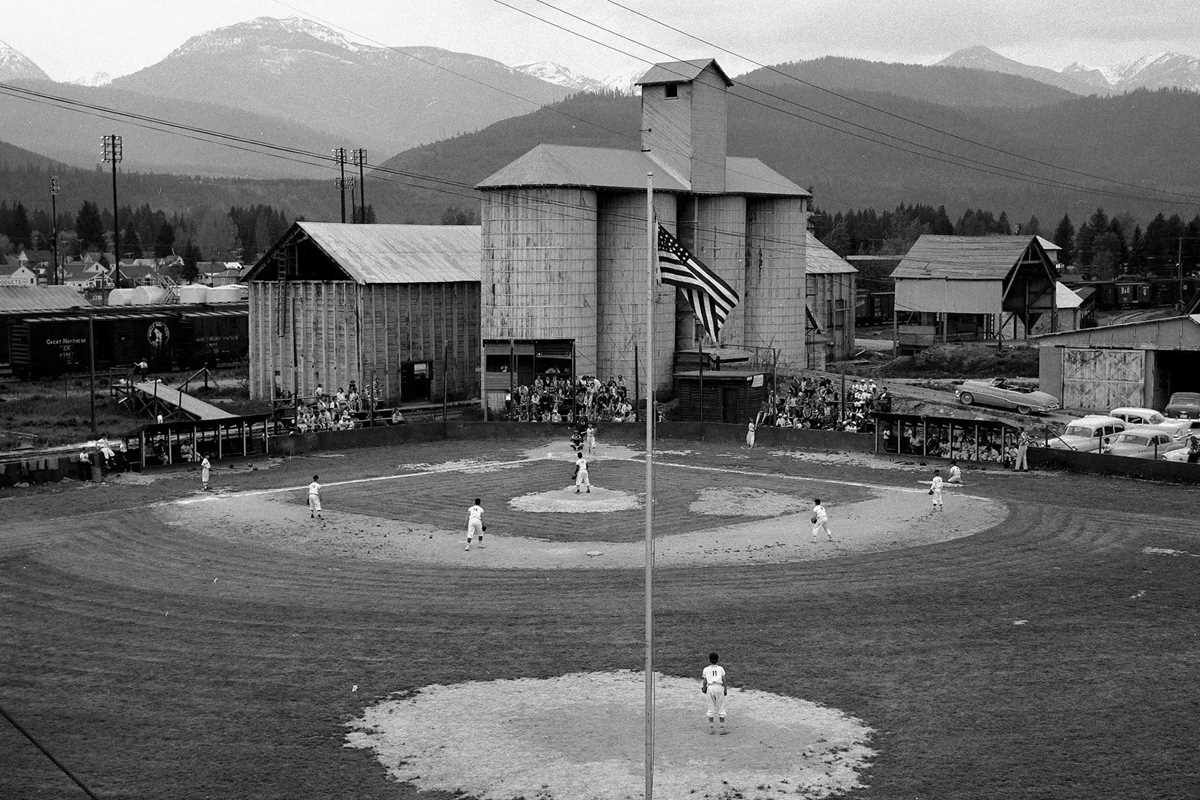 This photo from the 1960s shows a baseball field next to a railyard in Libby, Mont., where asbestos-tainted vermiculite was stored after being mined from a nearby mountain. Thousands of people have been diagnosed with asbestos-related illnesses from exposure in the Libby area. A trial starts Monday in a lawsuit against BNSF Railway from the estates of two people who used to live in Libby and died from mesothelioma, a rare lung cancer caused by asbestos exposure. (The Western News via AP)
This photo from the 1960s shows a baseball field next to a railyard in Libby, Mont., where asbestos-tainted vermiculite was stored after being mined from a nearby mountain. Thousands of people have been diagnosed with asbestos-related illnesses from exposure in the Libby area. A trial starts Monday in a lawsuit against BNSF Railway from the estates of two people who used to live in Libby and died from mesothelioma, a rare lung cancer caused by asbestos exposure. (The Western News via AP)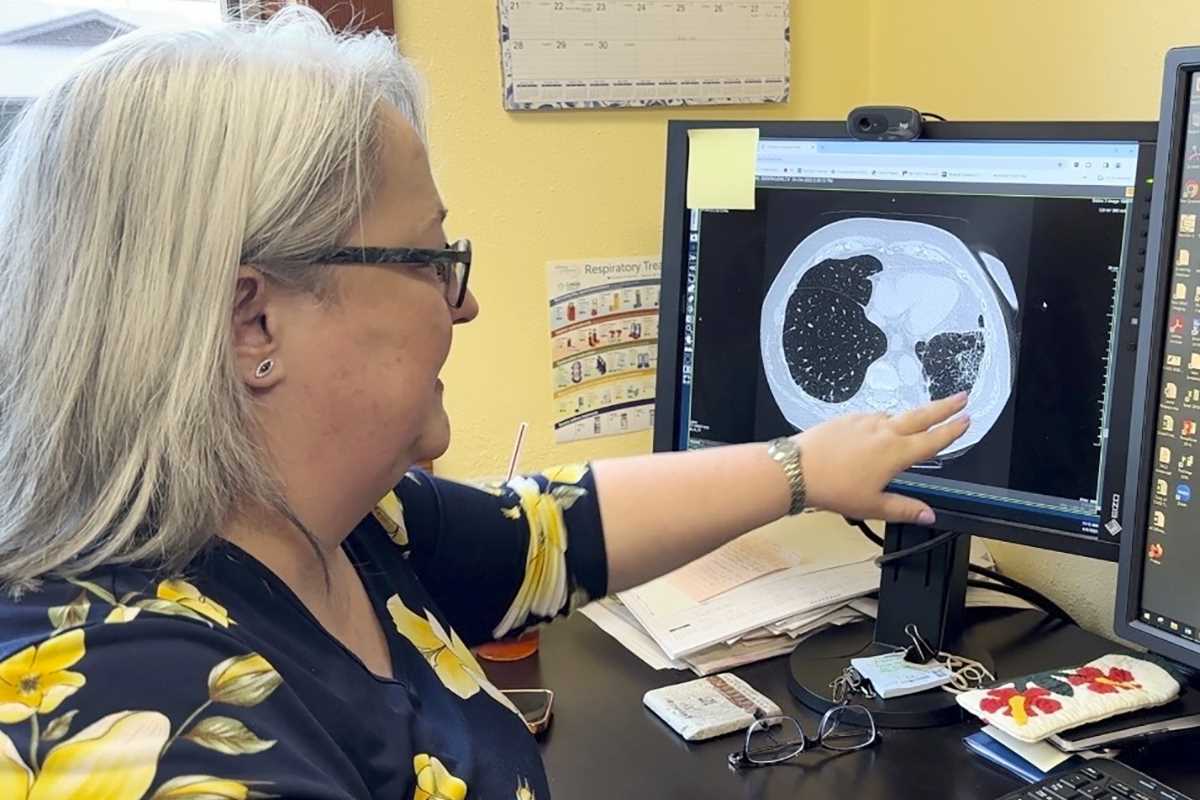 Paul Resch is seen petting his dog Mr. Bojangles after taking a walk near Parmenter Creek, Thursday, April 4, 2024 near Libby, Mont. Resch has an asbestos related disease that’s severely scarred his lungs. He tries to stay in shape to keep his breathing capacity from deteriorating. As a child Resch played baseball on a field constructed out of asbestos-tainted vermiculite and used to play inside storage bins for the material at Libby’s railyard. (AP Photo/Matthew Brown)
Paul Resch is seen petting his dog Mr. Bojangles after taking a walk near Parmenter Creek, Thursday, April 4, 2024 near Libby, Mont. Resch has an asbestos related disease that’s severely scarred his lungs. He tries to stay in shape to keep his breathing capacity from deteriorating. As a child Resch played baseball on a field constructed out of asbestos-tainted vermiculite and used to play inside storage bins for the material at Libby’s railyard. (AP Photo/Matthew Brown)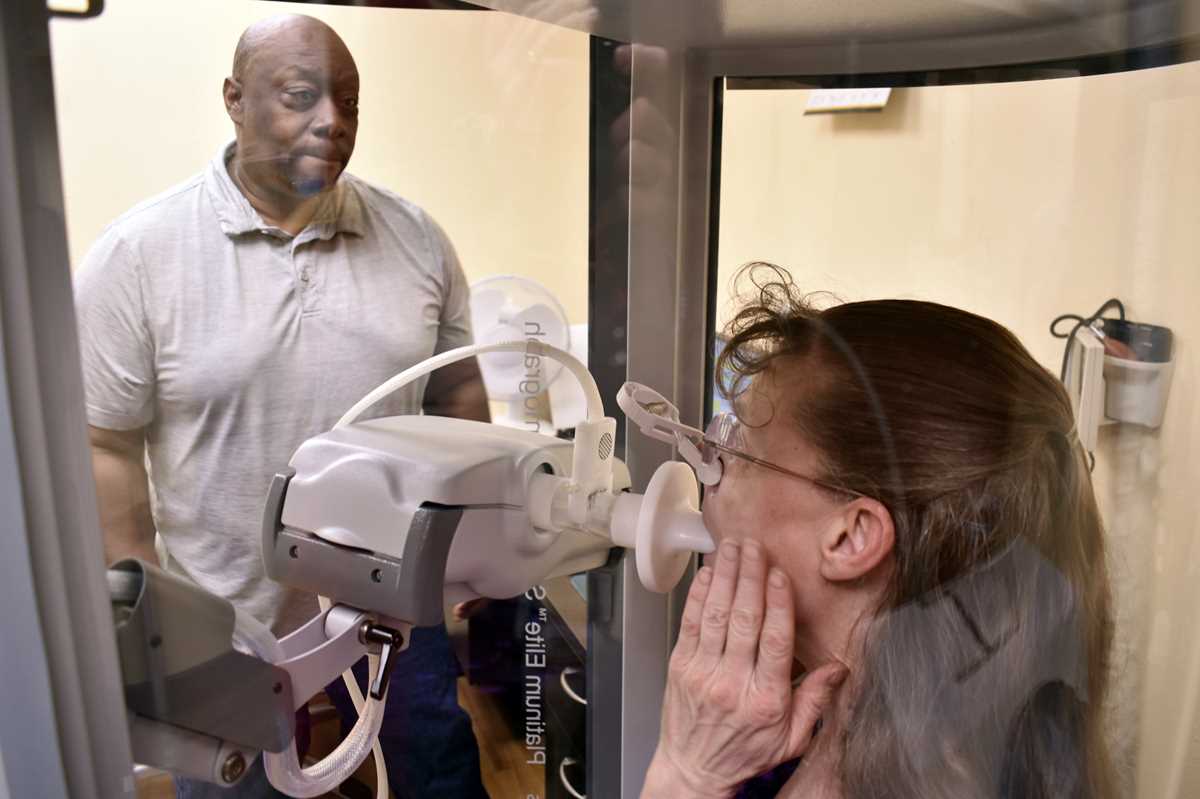 Dr. Lee Morissette shows an image of lungs damaged by asbestos exposure, at the Center for Asbestos Related Disease, Thursday, April 4, 2024, in Libby, Mont. The Libby area was contaminated by asbestos-contaminated vermiculite from a nearby mine that was shipped through by rail. The town has been largely cleaned up, but health officials say the long latency period for asbestos-related diseases means people will continue to be diagnosed with illnesses for years. (AP Photo/Matthew Brown)
Dr. Lee Morissette shows an image of lungs damaged by asbestos exposure, at the Center for Asbestos Related Disease, Thursday, April 4, 2024, in Libby, Mont. The Libby area was contaminated by asbestos-contaminated vermiculite from a nearby mine that was shipped through by rail. The town has been largely cleaned up, but health officials say the long latency period for asbestos-related diseases means people will continue to be diagnosed with illnesses for years. (AP Photo/Matthew Brown)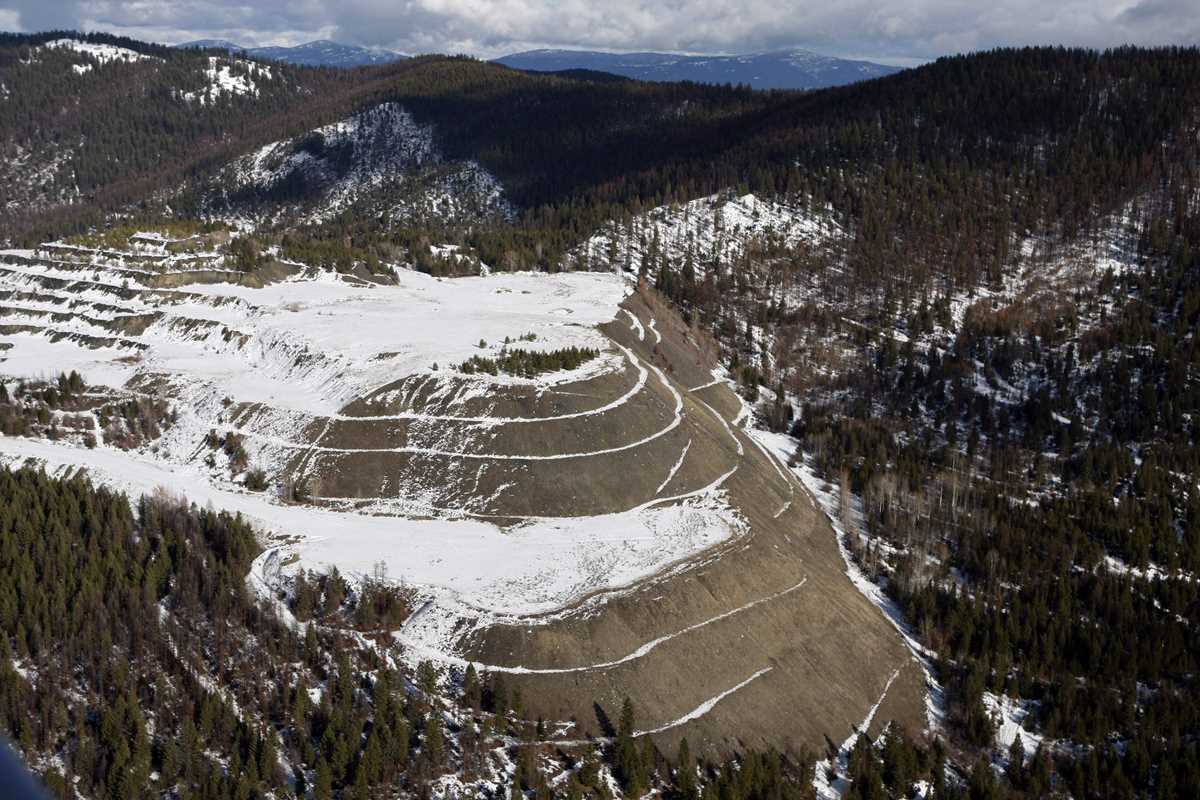 The W.R. Grace vermiculite mine is shown, outside of Libby, Mont., Feb. 17, 2010. Libby, a town of about 3,000 along the Kootenai River, had widespread contamination from asbestos-tainted vermiculite that was stored in town and transported by rail across the U.S. for use as insulation and other purposes. Contamination in the town has been cleaned up but the mine has not been addressed. (AP Photo/Rick Bowmer, File)
The W.R. Grace vermiculite mine is shown, outside of Libby, Mont., Feb. 17, 2010. Libby, a town of about 3,000 along the Kootenai River, had widespread contamination from asbestos-tainted vermiculite that was stored in town and transported by rail across the U.S. for use as insulation and other purposes. Contamination in the town has been cleaned up but the mine has not been addressed. (AP Photo/Rick Bowmer, File)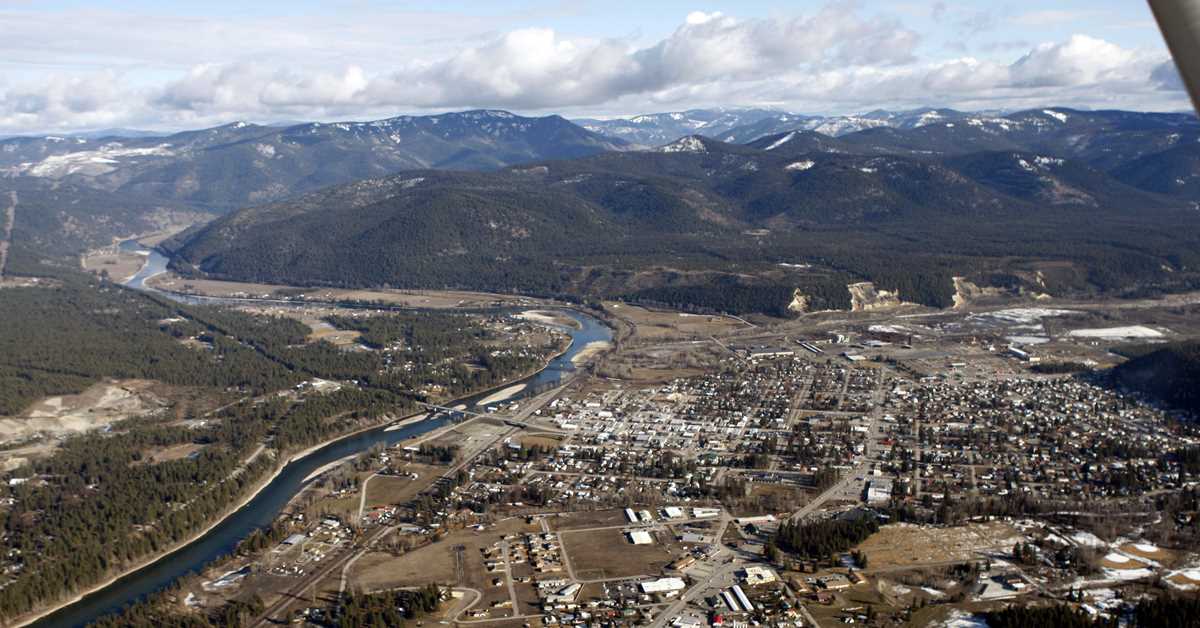 The town of Libby, Mont., is seen Feb. 17, 2010. Thousands of people have been sickened and hundreds killed by asbestos contamination in the Libby area. Most of the contamination has been cleaned up but the long latency period of asbestos-related diseases means people continue to get diagnosed with illnesses. (AP Photo/Rick Bowmer, File)
The town of Libby, Mont., is seen Feb. 17, 2010. Thousands of people have been sickened and hundreds killed by asbestos contamination in the Libby area. Most of the contamination has been cleaned up but the long latency period of asbestos-related diseases means people continue to get diagnosed with illnesses. (AP Photo/Rick Bowmer, File)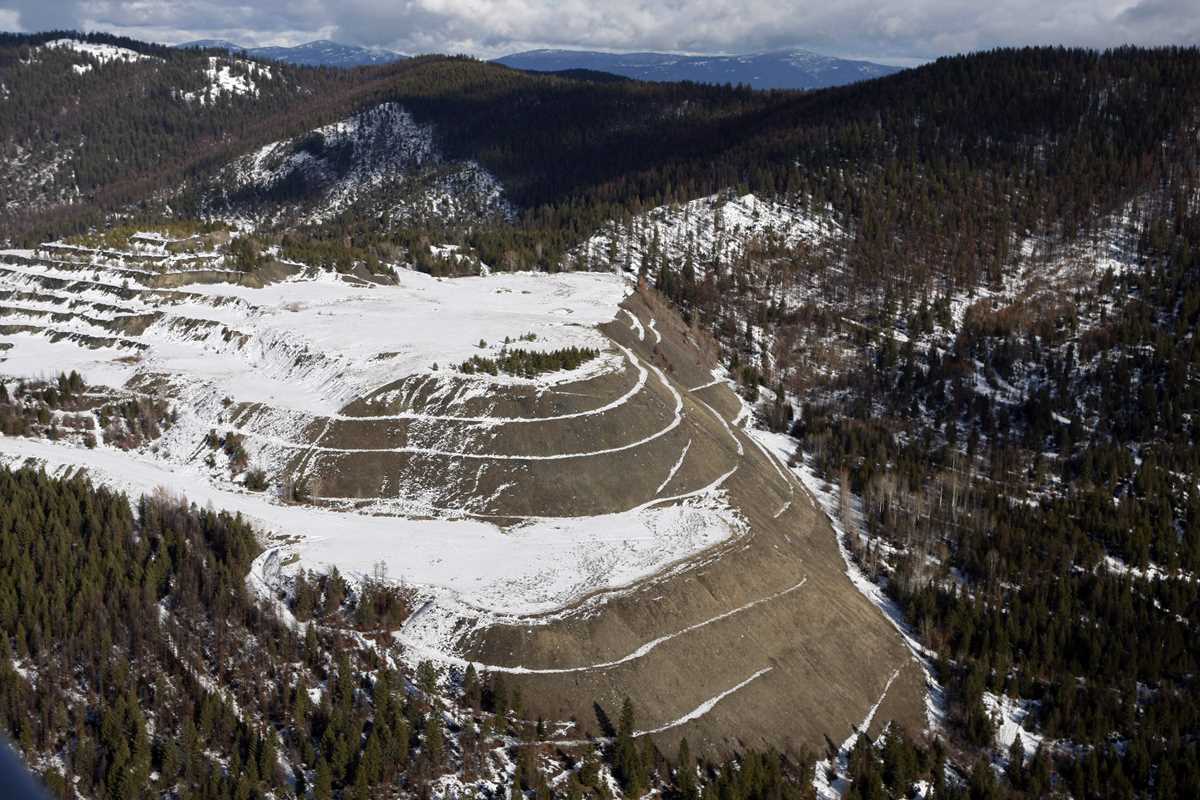 Paul Resch is seen on Thursday, April 4, 2024, near Libby, Mont. The 61-year-old has asbestos-related disease and is among thousands of people who were exposed to asbestos after contaminated vermiculite was mined near Libby and shipped through the small town by rail. (AP Photo/Matthew Brown)
Paul Resch is seen on Thursday, April 4, 2024, near Libby, Mont. The 61-year-old has asbestos-related disease and is among thousands of people who were exposed to asbestos after contaminated vermiculite was mined near Libby and shipped through the small town by rail. (AP Photo/Matthew Brown)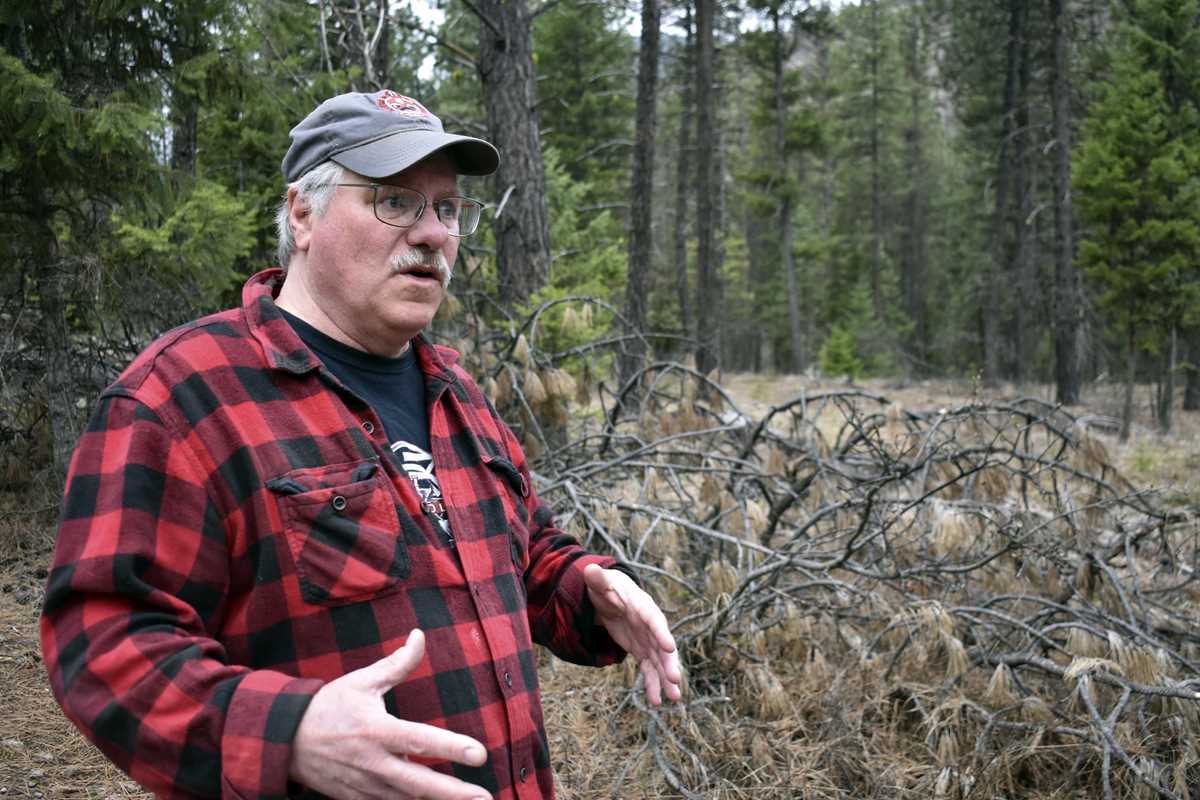 Paul Resch is seen speaking about growing up in northwestern Montana, on Thursday, April 4, 2024, near Libby, Mont. Resch is among thousands of people diagnosed with asbestos-related diseases from contaminated vermiculite that was mined near Libby. The material was shipped by rail to destinations across the U.S. for use as insulation. (AP Photo/Matthew Brown)
Paul Resch is seen speaking about growing up in northwestern Montana, on Thursday, April 4, 2024, near Libby, Mont. Resch is among thousands of people diagnosed with asbestos-related diseases from contaminated vermiculite that was mined near Libby. The material was shipped by rail to destinations across the U.S. for use as insulation. (AP Photo/Matthew Brown)LIBBY, Mont. (AP) — Paul Resch remembers playing baseball as a kid on a field constructed from asbestos-tainted vermiculite, mere yards from railroad tracks where trains kicked up clouds of dust as they hauled the contaminated material from a mountaintop mine through the northwestern Montana town of Libby. He liked to sneak into vermiculite-filled storage bins at an adjacent rail yard, to trap pigeons that he would feed, during long days spent by the tracks along the Kootenai River.
Today, Resch, 61, is battling an asbestos-related disease that has severely scarred his left lung. He's easily winded, quickly tires and knows there is no cure for an illness that could suffocate him over time.
“At some point, probably everybody got exposed to it,” he said, speaking of asbestos-tainted vermiculite. “There was piles of it along the railroad tracks. ... You would get clouds of dust blowing around downtown.”
Almost 25 years after federal authorities responding to news reports of deaths and illnesses descended on Libby, a town of about 3,000 people near the U.S.-Canada border, some asbestos victims and their family members are seeking to hold publicly accountable one of the major corporate players in the tragedy: BNSF Railway.
Hundreds of people died and more than 3,000 have been sickened from asbestos exposure in the Libby area, according to researchers and health officials. Texas-based BNSF faces accusations of negligence and wrongful death for failing to control clouds of contaminated dust that used to swirl from the rail yard and settle across Libby’s neighborhoods.
The vermiculite was shipped by rail from Libby for use as insulation in homes and businesses across the U.S.
The first trial among what attorneys say are hundreds of lawsuits against BNSF for its alleged role polluting the Libby community is scheduled to begin Monday.
The railroad — owned by Warren Buffett’s Berkshire Hathaway Inc. — has denied responsibility in court filings and declined further comment.
Resch works at an auto dealership in Libby and his wife is listed as a plaintiff in a pending lawsuit against BNSF in Montana's asbestos claims court. He's uncertain whether his sickness came from the rail yard. The Libby high school track included contaminated vermiculite, as did insulation in the walls and attics of homes he entered during his two decades as a volunteer firefighter.
The plaintiffs for the upcoming trial against BNSF, the estates of Joyce Walder and Thomas Wells, lived near the Libby rail yard and moved away decades ago. Both died in 2020 of mesothelioma, a rare lung cancer caused by asbestos that is disproportionately common in Libby.
The mine a few miles outside town once produced up to 80% of global vermiculite supplies. It closed in 1990. Nine years later, the Environmental Protection Agency arrived in Libby and a subsequent cleanup has cost an estimated $600 million, with most covered by taxpayer money. It's ongoing, but authorities say asbestos volumes in downtown Libby's air are 100,000 times lower than when the mine was operating.
Awareness about the dangers of asbestos grew significantly over the intervening years, and last month the EPA banned the last remaining industrial uses of asbestos in the U.S.
The ban did not include the type of asbestos fiber found in Libby or address so-called “legacy” asbestos that's already in homes, schools and businesses. A long-awaited government analysis of the remaining risks is due by Dec. 1.
Asbestos doesn’t burn and resists corrosion, making it long lasting in the environment. People who inhale the needle-shaped fibers can develop health problems as many as 40 years after exposure. Health officials expect to grapple with newly diagnosed cases of asbestos disease for decades.
The EPA declared the nation’s first ever public health emergency under the Superfund cleanup program in Libby in 2009. The pollution led to civil claims from thousands of people who worked for the mine or the railroad, or who lived in the Libby area.
During a yearslong cleanup of the Libby rail yard that began in 2003, crews excavated nearly the entire yard, removing about 18,000 tons of contaminated soil. In 2020, BNSF signed a consent decree with federal authorities resolving its cleanup work in Libby and nearby Troy, plus a 42-mile stretch (68 kilometers) of railroad right-of-way.
Last year, BNSF won a federal lawsuit against an asbestos treatment clinic in Libby that a jury found submitted 337 false asbestos claims, making patients eligible for Medicare and other benefits. The judge overseeing the case ordered the Center for Asbestos Related Disease to pay almost $6 million in penalties and damages, forcing the facility into bankruptcy. It continues to operate with reduced staff.
Some asbestos victims viewed the case as a ploy to discredit the clinic and undermine lawsuits against the railroad. BNSF said the verdict would deter "future misconduct” by the clinic.
In the months leading up to this week's trial, attorneys for BNSF repeatedly tried to deflect blame for people getting sick, including by pointing to the actions of W.R. Grace and Co., which owned the mine from 1963 until it closed. They also questioned whether other asbestos sources could have caused the two plaintiffs’ illnesses and suggested Walder and Wells would have been trespassing on railroad property.
U.S. District Court Judge Brian Morris blocked BNSF from blaming the conduct of others as a means of escaping liability. And he said the law doesn’t support the notion that trespassing reduces a property owner’s duty not to cause harm.
Morris has yet to issue a definitive ruling on another key issue: the railroad’s claim that its obligation to ship goods for paying customers exempts it from liability.
The plaintiffs argue the rail yard in downtown Libby — where Resch once played in piles of vermiculite — was used for storage and not just transportation, meaning the railroad is not exempt.
Montana's Supreme Court has ruled in a separate case that BNSF and its predecessors were more involved in the mine than simply shipping its product.
Mine owner W.R. Grace filed for bankruptcy in 2001 and paid $1.8 billion into an asbestos trust fund to settle future cases. It paid about $270 million to government agencies for environmental damages and cleanup work. The state of Montana was also faulted in Libby, for failing to warn residents about asbestos exposure. It paid settlements totaling $68 million to about 2,000 plaintiffs.
BNSF has settled some previous lawsuits for undisclosed amounts, attorneys for plaintiffs said. A second trial against the railroad over the death of a Libby resident is scheduled for May in federal court in Missoula.
“I sure hope that they give those folks justice,” Resch said about the upcoming trials. “I mean everybody took part in it as far as corporate America goes.” ___
This story has been corrected to reflect the proper spelling of Warren Buffett's last name. It is Buffett, not Buffet.
__
Hanson reported from Helena, Montana.
Before you make your next trade, you'll want to hear this.
MarketBeat keeps track of Wall Street's top-rated and best performing research analysts and the stocks they recommend to their clients on a daily basis.
Our team has identified the five stocks that top analysts are quietly whispering to their clients to buy now before the broader market catches on... and none of the big name stocks were on the list.
They believe these five stocks are the five best companies for investors to buy now...
See The Five Stocks Here
Click the link below and we'll send you MarketBeat's list of seven best retirement stocks and why they should be in your portfolio.
Get This Free Report